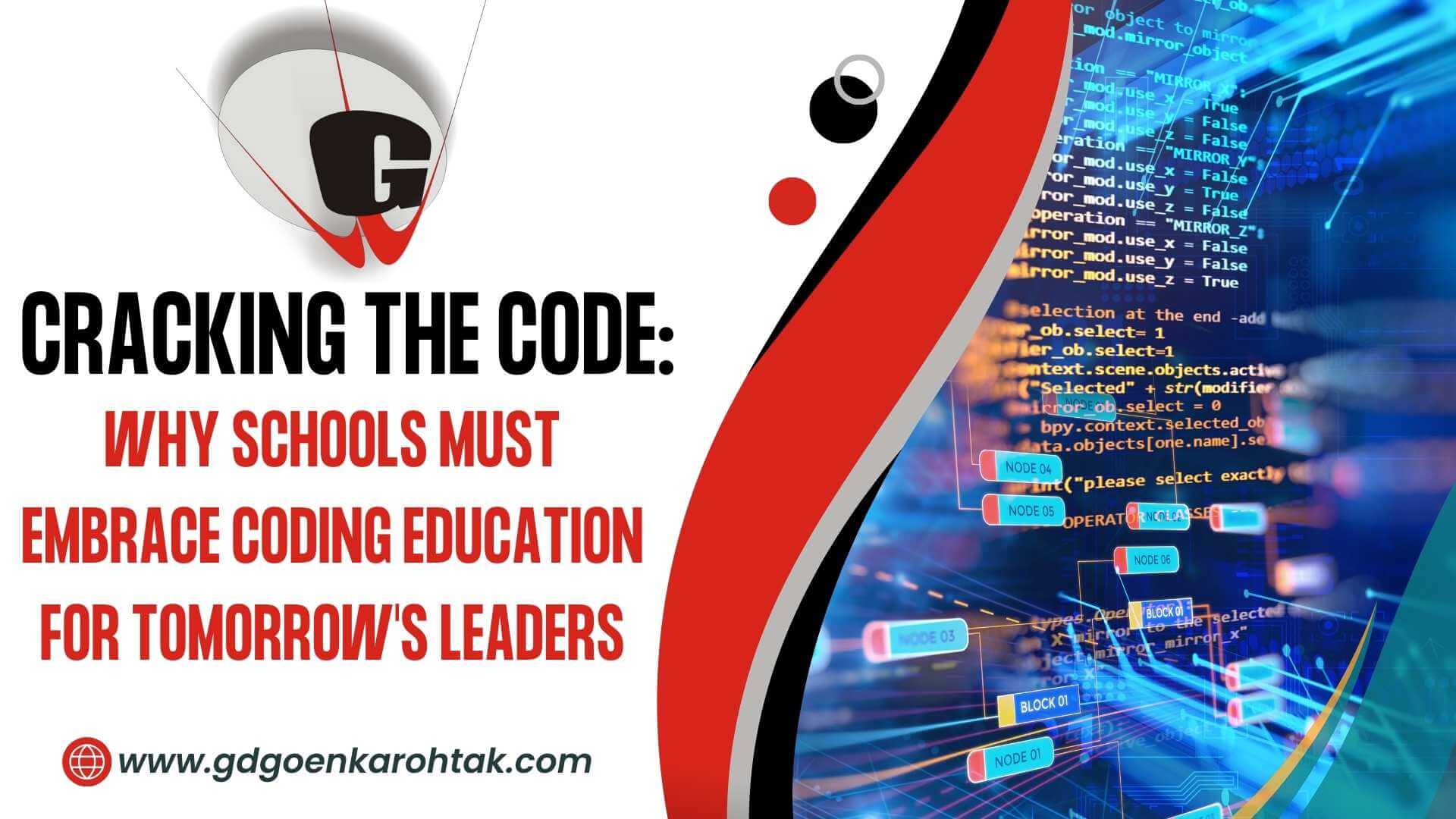In today’s digital age, coding has become an essential skill that empowers individuals to navigate and excel in an increasingly technology-driven world. As the global demand for coding proficiency continues to rise, it is crucial for schools to recognize the significance of incorporating coding education into their curriculum. By doing this, schools are empowering students to become active participants in shaping the digital world rather than just serving as passive consumers. In this blog, we will explore the reasons why coding should be taught in Top Boarding Schools in India.
- Enhancing Problem-Solving Skills
Coding fosters a logical and analytical thinking process, encouraging students to break down complex problems into manageable parts. By engaging with programming languages, students develop problem-solving skills that are transferable across various disciplines, improving their ability to approach challenges methodically.
- Encouraging Creativity and Innovation
Coding provides an avenue for students’ creativity and innovation to flourish. Through coding projects, students can express their unique ideas and bring them to life by designing interactive games, mobile applications, or websites. By nurturing this creative vision within classrooms, schools can cultivate a culture of innovation among future generations.
3. Promoting Digital Literacy
In today’s technologically advanced society, digital literacy has become as important as traditional literacy skills such as reading and writing. By introducing coding at an early stage in education, schools like GD Goenka International School, Rohtak equip students with valuable digital literacy skills necessary for their personal and professional development.4
4. Computational Thinking
Learning to code helps students to solve problems logically, deconstruct complicated issues into smaller, more manageable components, and adopt systematic problem-solving techniques. Collectively, these abilities, referred to as computational thinking, are useful in a variety of academic settings and real-world situations in addition to programming.
5. Improved Math Skills:
Learning to code involves applying mathematical concepts such as logic, algebraic equations, geometry, patterns, sequences, and algorithms practically. Through coding exercises, students gain a deeper understanding of mathematical concepts while developing their programming abilities simultaneously.
6. Preparing Students for Future Careers
With technology permeating every industry globally, there is no doubt that tomorrow’s workforce will require a solid foundation in coding fundamentals. By teaching coding in schools, educational institutions ensure that their graduates possess the necessary skills sought after by employers across diverse sectors such as software development, data analysis, artificial intelligence (AI), robotics engineering, and more.
7. Cultivating Collaboration and Teamwork Abilities
Coding projects often entail collaborative work where students learn how to communicate effectively while contributing collectively towards achieving project goals. Such experience nurtures their collaboration and teamwork abilities, which are crucial in today’s workplace environments.
8. Encouraging Inclusivity and Diversity
By integrating coding into the curriculum, schools can foster inclusivity and diversity in tech-related fields. Breaking the stereotype that coding is solely for a specific gender or demographic ensures equal opportunities for all students to pursue STEM careers. This broadens career choices for students while promoting equity in technology-driven industries.
In summary, Teaching coding in Best CBSE Boarding schools in India provides numerous benefits to learners. By incorporating coding education into the curriculum, schools equip students with problem-solving skills, encourages creativity and innovation, promotes digital literacy, prepare them for future careers, and enhances collaboration and teamwork abilities. Furthermore, it contributes to fostering inclusivity and diversity within technology-based fields. As educators strive to prepare students for the challenges of tomorrow’s world, teaching coding becomes an imperative step towards empowering future generations to thrive in an increasingly digitized society.


